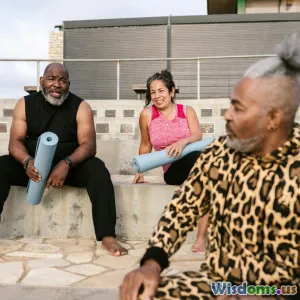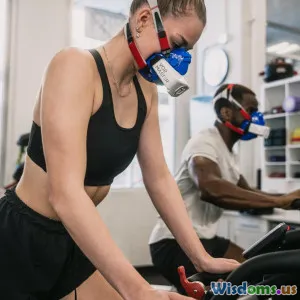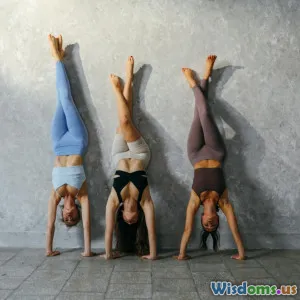
Mental Health Strategies for Seniors
8 min read Discover effective mental health strategies tailored for seniors, leveraging sports science insights for a vibrant, balanced life. (0 Reviews)
Mental Health Strategies for Seniors: Harnessing Sports Science for a Thriving Mind and Body
As we age, maintaining mental health becomes as essential as physical well-being. Seniors often face challenges like loneliness, cognitive decline, and mood disorders, but the intersection of sports science and holistic health offers promising strategies. This article dives deep into scientifically backed approaches to nurture mental resilience and emotional balance throughout the senior years.
Introduction: Why Focus on Mental Health in Seniors?
Mental health in seniors is frequently overshadowed by physical health concerns, yet it is equally vital for overall well-being. According to the World Health Organization, approximately 15% of adults aged 60 and over suffer from mental disorders, including depression and dementia. The significance of sustaining cognitive function and emotional stability cannot be overstated—it directly influences longevity, quality of life, and social engagement.
Advancements in sports science have uncovered dynamic ways physical activity and lifestyle interventions can enhance brain health and emotional well-being in seniors, turning what once felt like inevitable decline into an opportunity for growth and vitality.
Body
1. The Science Behind Physical Activity and Mental Health
Exercise promotes neuroplasticity — the brain's ability to form new neural connections — which is crucial for memory and learning. Aerobic activities like walking, swimming, and cycling increase blood flow to the brain, delivering oxygen and nutrients that support cognitive functions.
A landmark study from the National Institute on Aging found seniors engaging in moderate aerobic exercise for 150 minutes per week showcased a 30% improvement in memory and executive function compared to sedentary peers. Exercise also significantly reduces levels of cortisol, the stress hormone linked to anxiety and depression, thus stabilizing mood.
> "Physical activity is medicine for the mind just as much as it is for the body," says Dr. Laura Sanders, a leading gerontologist specializing in cognitive aging.
2. Targeted Exercise Modalities for Mental Health
a. Aerobic exercises
These not only boost cardiovascular health but elevate brain-derived neurotrophic factor (BDNF), a protein vital for brain health. Seniors might find brisk walking in nature or water aerobics enjoyable and beneficial.
b. Strength training
Resistance exercises can improve self-efficacy and decrease feelings of helplessness, a common contributor to depression in older adults. A study in the "Journal of the American Geriatrics Society" noted that strength training thrice a week over six months reduced depressive symptoms by 15%.
c. Mind-body practices
Yoga, Tai Chi, and Pilates integrate physical movement with mindful breathing and meditation, reducing anxiety and fostering emotional balance. Research shows Tai Chi improved cognitive function and reduced fall risk, while also lowering stress in elderly participants.
3. Social Engagement Through Group Physical Activities
Isolation exacerbates mental health issues among seniors. Sports science underscores how group exercises create social bonds crucial for emotional support.
Community centers offering senior-friendly classes—like dancing, chair aerobics, or walking clubs—turn exercise into a social event. Such networks enhance feelings of belonging and purpose. A longitudinal study evidenced that seniors involved in social exercise activities had significantly lower rates of cognitive decline.
4. Nutrition's Role in Mental Health
Sports science also emphasizes the impact of diet on brain function. Omega-3 fatty acids, antioxidants, and vitamins found in fruits, vegetables, fish, and nuts fuel neurotransmitter production and combat inflammation, a key factor in neurodegeneration and depression.
Elderly individuals adopting the Mediterranean diet have shown slower cognitive decline and better mood regulation. Combining good nutrition with physical activity creates a synergistic effect that maximizes mental health benefits.
5. Sleep and Recovery: Igniting Brain Repair Mechanisms
Exercise improves sleep quality—a crucial factor for mental health. During deep sleep phases, the brain clears metabolic waste, consolidates memories, and repairs neural pathways.
A survey of seniors engaging in regular, moderate exercise revealed a 40% decrease in insomnia symptoms. Better sleep leads to enhanced mood and improved executive functioning, laying the groundwork for effective coping with life’s stresses.
6. Goal Setting and Motivational Strategies
Structured, achievable goals grounded in sports science principles can significantly elevate seniors' motivation to participate actively in their care.
Using tools like SMART goals (Specific, Measurable, Achievable, Relevant, Time-bound), seniors can track progress in physical activities, preventing discouragement.
For example, a 70-year-old aiming to walk 20 minutes daily can ramp up gradually, experiencing visible improvements in endurance and mood—reinforcing a positive feedback loop.
7. Technology-Assisted Interventions
Modern technology provides innovative ways to maintain mental and physical health. Apps designed with sports science integration offer personalized exercise regimens, cognitive training games, and progress tracking.
"SilverFit," a Dutch program, combines virtual reality exercises with physical activity, enhancing cognitive and motor functions simultaneously, resulting in improved mental well-being for elderly users.
Conclusion: Embracing a Holistic, Active Approach to Senior Mental Health
Mental health in seniors demands a comprehensive approach blending physical activity, nutrition, social engagement, and rest—all guided by sports science principles.
By integrating aerobic and strength training, fostering social connections, ensuring balanced diets, and embedding purposeful recovery, seniors can combat cognitive decline, alleviate depression, and significantly raise their quality of life.
As Dr. Sanders aptly puts it, "Aging judiciously means embracing activity as a critical mental health tool—because the brain thrives when the body moves."
Adopting these evidence-based strategies can empower seniors not only to live longer but to thrive mentally and emotionally, crafting golden years filled with vigor and joy.
Takeaway: The synergy between sports science and mental health creates a powerful framework for seniors seeking to enhance cognitive health and emotional happiness. Whether through community walking clubs, mindful movement practices, or smart goal setting, seniors have accessible, proven pathways to a thriving mind and body.
Rate the Post
User Reviews
Popular Posts




















